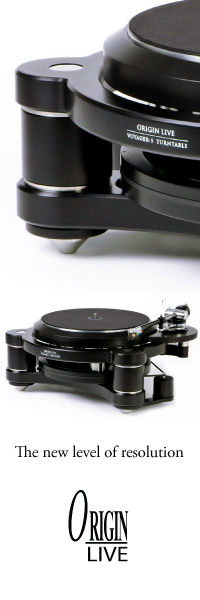Curtis Fuller – BLUES-ette
|
Curtis Fuller – BLUES-ette |
| [Savoy Jazz SVY 17186] |
| Craig “Craigy- G” Fitzpatrick |
|
August 2004 |
Cool Blues
 After World War II ended a new style of jazz emerged called “bebop”. This highly technically oriented sound was as controversial as it was entertaining. Audiences enjoyed fast tempos and complex harmonies by innovators such as Charlie Parker and Dizzy Gillespie. From the start, bebop was not intended to be dance music and the big bands that played lyrical melodies were beginning to wane. During this time, quartets and quintets gained in popularity and trumpet and saxophone players prospered, but the opportunities for jazz trombonists were limited.
After World War II ended a new style of jazz emerged called “bebop”. This highly technically oriented sound was as controversial as it was entertaining. Audiences enjoyed fast tempos and complex harmonies by innovators such as Charlie Parker and Dizzy Gillespie. From the start, bebop was not intended to be dance music and the big bands that played lyrical melodies were beginning to wane. During this time, quartets and quintets gained in popularity and trumpet and saxophone players prospered, but the opportunities for jazz trombonists were limited.
Of course there were exceptions to the rule. J.J. Johnson, Kai Winding, and Al Grey were a few trombonists who excelled. In the early 50’s a different type of sound was ushered in called “hard bop”. Hard bop differs from bebop because it is a slower tempo, incorporates minor keys, varied bass lines, and has an infusion of blues and R&B. This rhythmic style of jazz was the last of its kind to allow the audience to kick up their heels and hit the dance floor.
In the mid 50’s a talented, young trombonist named Curtis Fuller hit the scene. Fuller embraced the hard bop style and it was a perfect match for his rich yet tactical sound. When Fuller plays his instrument, either as soloist or accompanist, you can easily describe his style as the musical equivalent of a man that “walks softly but carries a big stick.” Fuller’s ability to extend over multiple octaves with lighting fast strokes set him apart from many of his contemporaries.
Born in Detroit in 1934, Curtis Fuller began playing baritone sax as a young boy. In high school he decided to switch to another lower brass instrument, the trombone. Although Detroit would later become synonymous with “the Motown sound”, during the 50’s the Motor City also produced quite a collection of jazz greats like Hank and Elvin Jones, Donald Byrd and Kenny Burrell. Most artists during this time moved to the bright lights of the Big Apple and Curtis soon followed. It was here where he received his start as a bandleader. He has recorded on the Prestige and Blue Note labels but it is his collaboration with Benny Golson on Savoy that is the subject of this review.
In 1959, Curtis Fuller recorded Blues-ette, a six track disc with his band mates; Benny Golson on tenor saxophone, Tommy Flanagan on piano, Jimmy Garrison on bass, and Al Harewood on drums. On every track, Fuller was consistently out front and set a tone that showed that a trombone was a musically engaging instrument. Fuller performed with uncanny precision and impeccable timing. Combined with Golson, the two produced a sound that I found rich and compelling while as soloists each performer executed with remarkable skill; simple and uncluttered with tremendous warmth and passion. Flanagan, Garrison, and Harewood were underrated at the time but this rhythm section could rival the best of their day. Combined, these three musicians did an excellent job of keeping the tempo and provided an entertaining and stimulating backdrop.
While listening to this disc you’ll notice a wonderful blues theme. Unlike other recordings that had “Blues” in the title, Blues-ette takes a swift departure from the laid back and the melancholy. The performers focus on chemistry and teamwork instead of trying to outperform one another. That would have negated the synergy.
As I listened to each tune it reminded me of the beauty and artistry associated with synchronized swimming. The opening track, “Five Spot After Dark”, is a perfect example. Written by Golson, this tune is an attention grabber and one that I’m sure you’ll play often. It’s a soulful blues tune that allowed me to realize the real definition of “smooth jazz” within the “straight-ahead” genre. Both Golson and Fuller engage us with long, crisp, liquid lines. Fuller’s performance gives new meaning to the word “definitive”, as his solo on trombone was memorably smooth. “Minor Vamp”, written by Golson is a burner. It features Golson’s smooth, warm-bodied sound with Garrison and Harewood once again keeping the pace. It’s the most upbeat tune of the bunch and demonstrated Fuller’s ability to show his speed. The title track, “Blues-ette” was my favorite. It begins with Flanagan on the piano and could easily be titled cool-ette; it’s just that engaging. This is a tune that gives each one of the performers an opportunity to solo with the exception of Harewood. His performance is on the lighter side of dynamic but his cohesive play on the drums helped to cement the tempo for the others. Jimmy Garrison’s performance on the bass was invigorating. His play was so clear that I could easily envision him plucking the strings. Both Fuller and Golson’s performances were nothing short of remarkable.
This is one CD that I enjoyed immensely. Curtis Fuller’s invigorating performances will change your perception of the trombone if you, like many people I know; think it’s a bland and boring instrument. If you’re searching for a sound that is fresh and stylish and would like to reconnect with cool and tantalizing sounds reminiscent of the Peter Gunn theme song, then Blues-ette should be considered one of the centerpieces of your collection. Fuller’s ability to play the trombone with the speed and accuracy of most trumpet or saxophone players will help you develop a newfound appreciation for the instrument. Thanks to Fuller and company we have one more opportunity to celebrate the rhythmic sounds of hard bop and his skillful play will continue to bring you hours of enjoyment. Highly recommended for music fans that like a main course of jazz with a side of blues.
If you would like to contact Craig his e-mail address is CraigyG@stereotimes.com
![]()
Don’t forget to bookmark us! (CTRL-SHFT-D)
Stereo Times Masthead
Publisher/Founder
Clement Perry
Editor
Dave Thomas
Senior Editors
Frank Alles, Mike Girardi, Russell Lichter, Terry London, Moreno Mitchell, Paul Szabady, Bill Wells, Mike Wright, and Stephen Yan,
Current Contributors
David Abramson, Tim Barrall, Dave Allison, Ron Cook, Lewis Dardick, John Hoffman, Dan Secula, Don Shaulis, Greg Simmons, Eric Teh, Greg Voth, Richard Willie, Ed Van Winkle, Rob Dockery, Richard Doron, and Daveed Turek
Site Management Clement Perry
Ad Designer: Martin Perry





Be the first to comment on: Curtis Fuller – BLUES-ette